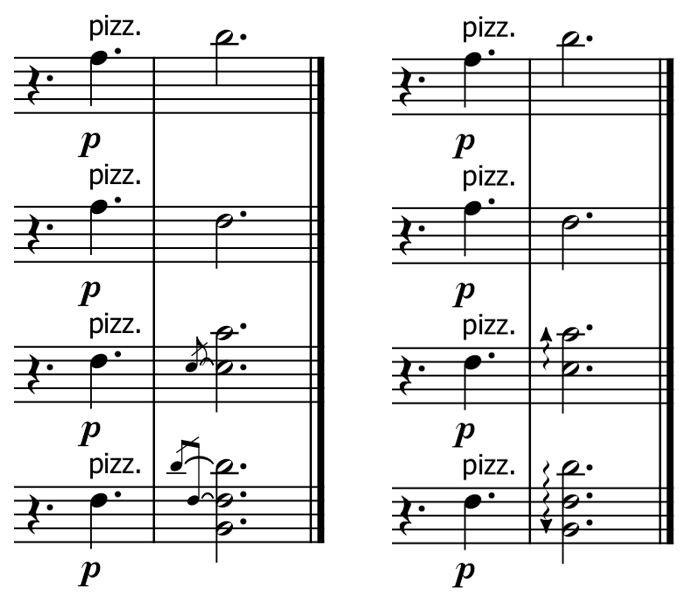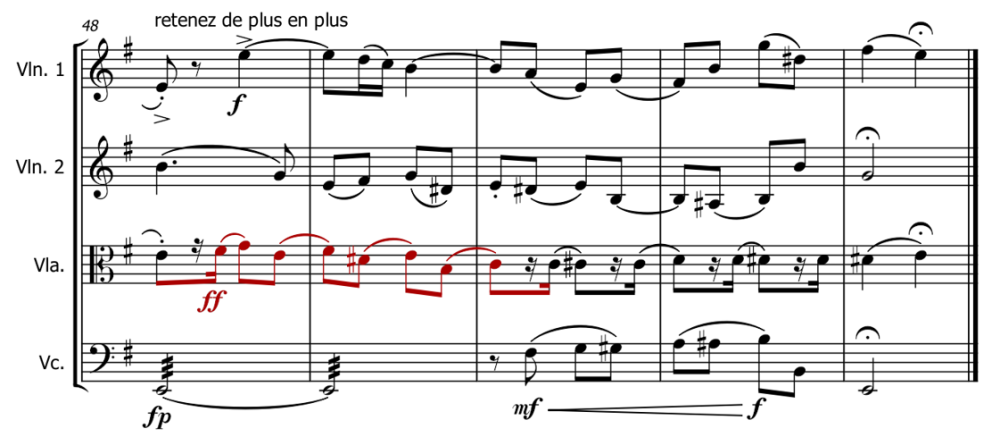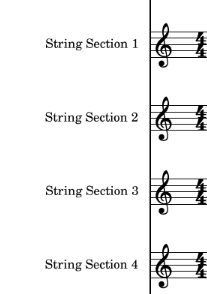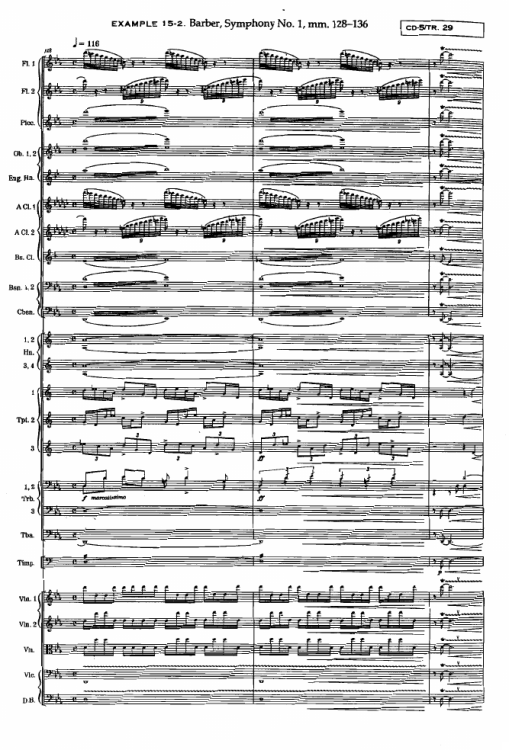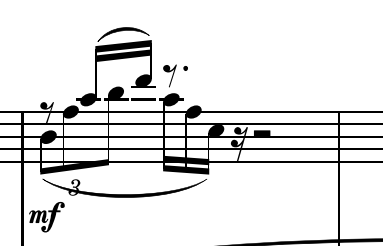All Activity
- Past hour
-
.thumb.png.8b5b433a341551e913a34392660bc95b.png)
Fall 2025 Halloween Competition
PeterthePapercomPoser replied to PeterthePapercomPoser's topic in Monthly Competitions
The competition is now over! Check out the results and winners! -
.thumb.png.8b5b433a341551e913a34392660bc95b.png)
Poll - 2025 Halloween Competition
PeterthePapercomPoser replied to PeterthePapercomPoser's topic in Monthly Competitions
Check out the results and winners! -
PeterthePapercomPoser started following Idea no.0
-
MY_MUSIC_058_20251104_163157_164052521.mp3
- Today
-
.thumb.png.1e2763f479362bbb522da50d31ef2e50.png)
A hollow theme for Halloween (Fall 2025 competition)
therealAJGS replied to therealAJGS's topic in Electronic
the instruments are music box, drums, organ, harpsichord, and vibraphone, -
.thumb.png.1e2763f479362bbb522da50d31ef2e50.png)
A hollow theme for Halloween (Fall 2025 competition)
therealAJGS replied to therealAJGS's topic in Electronic
it's music box, not celesta. also, i used ai for the score since i didn't have time to make a musescore account and create a score since I didn't know we needed one till the last minute. -
Henry Ng Tsz Kiu started following Favourite ever piece(s)?
-
.thumb.png.8b5b433a341551e913a34392660bc95b.png)
Poll - 2025 Halloween Competition
PeterthePapercomPoser replied to PeterthePapercomPoser's topic in Monthly Competitions
Ok .. your votes are showing up now. Thanks for voting! -
.thumb.png.1e2763f479362bbb522da50d31ef2e50.png)
Poll - 2025 Halloween Competition
therealAJGS replied to PeterthePapercomPoser's topic in Monthly Competitions
yeah. probably a technical issue. -
.thumb.png.8b5b433a341551e913a34392660bc95b.png)
Poll - 2025 Halloween Competition
PeterthePapercomPoser replied to PeterthePapercomPoser's topic in Monthly Competitions
none of your votes are showing up on my end. Are you sure you hit the "Vote" button at the bottom of the form to submit your votes? -
.thumb.png.1e2763f479362bbb522da50d31ef2e50.png)
Poll - 2025 Halloween Competition
therealAJGS replied to PeterthePapercomPoser's topic in Monthly Competitions
i did. -

Concerto in C for Flute and Orchestra
Omicronrg9 replied to J. Lee Graham's topic in Orchestral and Large Ensemble
Nah, this is GREAT. Thank you, it's so great to come back to this forum and stumble upon such a magnificent work. I agree with Peter in that you should leave the flutes as they are. This live would probably be great! I am not really a fan of concertos. For some reason they don't really stick to me, it just must be that I have not listened to them enough and with enough attention. But here, listening to this, I feel right at home. What a delightful first movement! It was light, gentle, sweet and very enjoyable in summary, although it was not bland or boring, I loved the tenser moments with lots of timpani and the passage right after the introduction. You clearly know your craft and I think that shows in the equilibrium between the orchestra and the soloist! The andante was also lovable. It did even gain a bit of sweetness but it didn't become overwhelming, pompous... No, again I find equilibrium, and I cannot really stop the piece so here I come again. Some resolutions of certain passages remind me a lot of the second movement of Haydn's Trio No. 39, and probably of lots of other pieces written by him but this one came to mind. Third movement was a tiny tiny bit darker or more serious, those minor passages preceded by the striking brass+timpani tuttis (or tuttis overall, didn't see the score at that point) were something I 200% enjoyed. And the last fanfares and finally, the coda... Damn. Impressive, hats off. I feel almost like if I had attended to a premiere of some great musical work (and at my place that's not very common, it's either ultrahyperdissonant or conceptual stuff or already established music by our grand masters of the past). What a great job, many many thanks and congratulations. I have already shared it with my friends. Hi man. Since the OP did not reply yet let me just throw two very well known references that you may know as well, but just in case: ♫ The study of Orchestration by Samuel Adler ♫ Principles of Orchestration by Nikolai Rimsky-Kosarkov In the rare case you haven't heard of them, here you go. Best regards, Daniel–Ø. -
Omicronrg9 started following J. Lee Graham
-
therealAJGS started following Favourite ever piece(s)?
-
.thumb.png.1e2763f479362bbb522da50d31ef2e50.png)
Favourite ever piece(s)?
therealAJGS replied to TristanTheTristan's topic in Music Appreciation: Suggest Works or Articles
moonlight sonata 3rd movement, Beethoven. -
AI was not used in this song. I played the saxophone, my group's name is "AI Competition." Yeah, the recording quality isn't the best.
-
Ah thanks so much @Monarcheon for your comments/feedback/thoughts! It's rare that I get this much to digest in one go, but I'm not complaining if my steak is too juicy and my lobster too buttery. That's a good point you bring up. I did originally want to go for a much longer/expansive theme and variations piece (I think I had this one in mind as the model), but, as a chronic procrastinator, I think I rushed to try to squeeze it in—at the cost of something more substantial—for that competition. Now that that's over and I've realised the futility of arbitrary deadlines, I feel like I can put quite a bit more effort into this. I really like your suggestion about trying to back-engineer extra sections of the theme so I'll be going through my current variations with a fine-toothed comb shortly... Oh yes, I think that'd work very well, I'm gonna put that in! I was thinking something raindroppy for that accompaniment and this definitely suits it. Hmm, I think I see what you mean about the jump, if I presume you're talking about the octave B-to-B? I did think it was a bit iffy when I wrote it so I'm gonna see if I can write a few other versions. Did you mean you felt as if V1 and V2 should convene in bar 5? I'm not sure if this is related, but during my earlier drafting process I did actually think of having all the instruments settle on E in the last bar, so this particular version felt a bit odd to me with V2 falling to G at the end. I'll try expanding the theme and seeing what works best... Yes, definitely, that is what I meant, I seem to have forgotten what that was called! I'll go in and edit that, as well as the rolled pizzicato thing, which I also probably want with the viola. I'm also super happy to hear that b. 21 onwards worked because at the time I wrote it I felt it might have been too disjunct from the rest of that variation. Is it convention to mark a rolled pizz. with an arpeggio line, or something else? I probably want the viola and cello in contrary motion, with the viola up (with the regular arpeggio marking or the one with the arrow), the cello down, and the violins coinciding with the last note only. I like the first option à la Scriabin's Eighth Sonata, but I'm not sure if that might be misinterpreted: Also one of the things I noticed! I remember coming up that rising chromatic line and really digging it, but I must've forgotten that I was tiptoeing around the dominant in the other instruments. Although I'm pretty sure I liked the dissonance that came out of that, the resolution didn't seem very satisfying...I did a small shuffling around that probably works better? I'm certainly the least satisfied with this variation—maybe because I churned it out the fastest, lol—and I agree with your sentiment on the tremolo, contrast, etc. I thought the transitions into the B section and from the B section back into the tremolo were particularly poor, so that'll also need redoing. I'll probably rework it to give it more of a Prestissimo finale/final movement feel (I have a feeling I want to keep this as the last variation and fill the other variations in between) and give more time for the flittering to settle in before moving onto the slow B section, which I thought probably came in too early. Time to get cracking once all my exams are over...
-
Nice improv! Are you the saxophonist? Or did you use AI or something like that? Too much cymbal, and it seems a bit odd at times for me, not sure why, but all in all, great! Kind regards, Daniel–Ø.
-

Apatite - Short Orchestral/Vocal Sketch (score + audio)
Omicronrg9 replied to Burlap Guy's topic in Choral, Vocal
Hi Burlaw Guy and welcome to the forums! Nice atmosphere you created. Quite simple but it mostly works, soundwise. You don't get into complication, and thus little trouble comes. However, I am not sure of how you recorded this but it's clearly wrong (compared with what the score reads) at many places. It's specially noticeable in the off-rhythm passages that should not be off, and the last section in which you have a piano solo that is everything but equal 8ths! Score-wise and in regards of other aesthetic and musical aspects I believe @TristanTheTristan and @Thatguy v2.0 have given you some advice that is worth checking in my humble opinion. My best advice, if you want to make scores and compose your works yourself for Orchestra, is to first learn how to make them readable, useful for real orchestras or any size, and overall learn about the disposition of these instruments, their characteristics, etc. You won't get to idiomatic writing in the blink of an eye, but you will spot strange stuff in your own scores and maybe in others'! For that purpose I must recommend you a book by Samuel Adler called: "The Study of Orchestration". Examples of strange scoring (for a real orchestra) are: What strings? Violins, violas...? All of them? 4 scores for all strings? This is ambiguous and apart from that you got violas on a separate staff! The order in which you present the instruments in a general score also matters. More to some than to some others but a standard order is always advised. And just to put some more examples of GOOD writing practices for orchestra and details found on a bit more in-depth analysis of the score: • You present female voice and choir parts, but then they turn to Vo. and W. What happened? • The horn can be transposed to F and Bb, normally it's on F as it's the case in your score but knowing things like these and specifying them never hurts! • Specify the type (and if you want, the number) of instrument playin' in every part. "String section" says very little. "String section" with block chords, says a bit more, but not about the piece, but about the approach used to reach it. Normally, you have 2 violin sections, 1 viola section, 1 cello section and 1 double bass section. Get acquainted with the terms divisi and unison, again not 100% needed but an accumulation of good use of conventions and fine details makes a score shine. I know the image I sent you is pixelated but all things I'm saying are in part there. Really, reading a treatise of orchestration such as the one I suggested will greatly help you in this regard! Finally: it is a bit strange that you have almost no brass but the horn. The score overall needs some polishing but it can be read. Beware of overlaps. A bit all over the place for a review, I know, but I just intend to not repeat what my colleagues here said and to give you some more stuff to work on. Hope any of this was of help. Best regards, Daniel–Ømicrón. -
Well at least for Hollywood films music I guess. Many film composers in the Art Films are actually quite great.
- 18 replies
-
- 2
-

-
Aaah, understood. To be honest, I had never thought much of differences between modern film composers ways of developing motives and themes and the ways of the grand masters of the past. See you around in the forums 😁
- 18 replies
-
- 1
-

- Yesterday
-
Popular and cinematic music often doesn't develop themes in a classical way, instead opting to repeat the themes in different keys and sometimes even in the same key.
- 18 replies
-
Damn man, thanks. I am deeply honored. Thank you (and Peter!) for keeping this forum alive all this years. May we forever see it sprouting posts with new compositions. Now I can see the text thanks to quotting + using Text colour = Automatic! Before... 🥶 I like the "happy-go-lucky but creepy quality much like the way clowns are happy but creepy to many people", did not think about clowns. Actually I have never been into a circus or never assisted any celebrations in which a clown was performing 😰. It's neat to see that the music made you make that connection without extra input. What do you mean by cinematic repetition of themes? Just curious Thank you both for sharing your impressions guys :). Damn, what a contrast between your impression and Peter's! I agree that it's not very spooky, in fact I think I have like 20 pieces way more sinister than this thing. But elves? Gold dust? Wild! I am grateful, not everyday I can read other people's perception of this or any other piece of mine, my public is very limited 😁. Good luck in the polls and once again, many thanks, Mr. Handke!
- 18 replies
-
- 1
-

-
.thumb.png.8b5b433a341551e913a34392660bc95b.png)
Poll - 2025 Halloween Competition
PeterthePapercomPoser replied to PeterthePapercomPoser's topic in Monthly Competitions
@chopin and @therealAJGS are you going to vote in the poll? -
Apatite - Short Orchestral/Vocal Sketch (score + audio)
TristanTheTristan replied to Burlap Guy's topic in Choral, Vocal
Sorry, Ignore the previous post. It is too messy. Hi There! Welcome to YC! Anyways, I can clearly hear from the start of what tone you want it to be like. I favor that part from measures 49-76. It generally gives a Coda feeling. You might be wondering: @TristanTheTristan, why didn't you just write from bars 49-the end? That is because, you had outlying part at the end for piano solo, which doesn't feel like it was needed. I will be analysing most bars by themselves here. Interesting, slightly prokofiev-like ideas. Is intended to sound very slightly off-beat by the end? The following is quite a smart idea that plays with syncopation. Nice! (Harp) No. Rename it to just 'Piano (Right hand)'. It is not grand at all. It barely plays anything at all. It usually plays a note and then rests. Other times it is just playing eighths. You are not using the bass either, so rename Piano (Right Hand). Also notice that you are using the simplest chords possible at most times. I, IV, V, not even using the relative minor which would be VI. I listened through the full 3 minutes and whatever something seconds and I didn't find a hint of other chords. You should study pieces like Fantasie Impromptu by Frederyk Chopin Op. Posth. 66, by NOT LISTEN TO IT AND ENJOY IT, but instead study the chords he has used. Study Gaspard de Le Nuit's Ondine by Maurice Ravel M.55 in the same way. Apatite is supposed to be glowing-like. This feels too straight-forward. Music isn't like that. In musical composition you use your brain to find ways to describe it. It is just like the technique in lingual-writing: Show don't tell. You are telling. Good composers show. If you tell it, it might be a lie, but if you show it, you couldn't be lying. Listen, you know what, here is something: on discord I am friends with Meliton Soupelin; you probably know about him. At the start of my composition journey, he has given me great advice. Exactly the following: "Also, if you are at the start of your composition journey, I strongly warn against trying to compose large pieces. Start with small pieces and work your way up with progressively larger pieces only when you are satisfied with the results of the smaller compositions.Your quality of work will substantially increase. I used to compose like you when I was younger. I forced myself into studying my favorite pieces and trying to understand each technique the composers used, and apply them myself. I did not merely pay attention to melody and technique, but also harmony and structure. It was a humbling but very reward experience.That is my only advice. Few people have the bravery to take it. They usually get mad and leave in a huff. But the ones who did follow my advice have made significant improvements as composers." -Meliton Soupelin. I took his advice of forcing myself into studing my favourite pieces and composers and their techniques and everything. I studied Polonaise Fantasie for hours. Then, I continued with the next piece, and then the next. As he said, it DOES in fact take much effort, but worth it. I now see, that he was correct all the way, and I am glad I took his advice. Even now I am using this technique, and as a composer I have wrote much better pieces than before. I wish you listen to my advice. Have a nice compositional life. Remember, Every composer goes through different things. You don't have to take my advice if you don't want to. It is your choice whether you want to regret it or not. Bye. -TristanTheTristan 03/11/2025 -
TristanTheTristan started following Apatite - Short Orchestral/Vocal Sketch (score + audio)
-
Apatite - Short Orchestral/Vocal Sketch (score + audio)
TristanTheTristan replied to Burlap Guy's topic in Choral, Vocal
Hi There! Welcome to YC! Anyways, I can clearly hear from the start of what tone you want it to be like. I favor that part from measures 49-76. It generally gives a Coda feeling. You might be wondering: @TristanTheTristan, why didn't you just write from bars 49-the end? That is because, you had outlying part at the end for piano solo, which doesn't feel like it was needed. I will be analysing most bars by themselves here. Interesting, slightly prokofiev-like ideas. Is intended to sound very slightly off-beat by the end? The following is quite a smart idea that plays with syncopation. Nice! (Harp) No. Rename it to just 'Piano (Right hand)'. It is not grand at all. It barely plays anything at all. It usually plays a note and then rests. Other times it is just playing eighths. You are not using the bass either, so rename Piano (Right Hand). Also notice that you are using the simplest chords possible at most times. I, IV, V, not even using the relative minor which would be VI. I listened through the full 3 minutes and whatever something seconds and I didn't find a hint of other chords. You should study pieces like Fantasie Impromptu by Frederyk Chopin Op. Posth. 66, by NOT LISTEN TO IT AND ENJOY IT, but instead study the chords he has used. Study Gaspard de Le Nuit's Ondine by Maurice Ravel M.55 in the same way. Apatite is supposed to be glowing-like. This feels too straight-forward. Music isn't like that. In musical composition you use your brain to find ways to describe it. It is just like the technique in lingual-writing: Show don't tell. You are telling. Good composers show. If you tell it, it might be a lie, but if you show it, you couldn't be lying. Listen, you know what, here is something: on discord I am friends with Meliton Soupelin; you probably know about him. At the start of my composition journey, he has given me great advice. Exactly the following: "Also, if you are at the start of your composition journey, I strongly warn against trying to compose large pieces. Start with small pieces and work your way up with progressively larger pieces only when you are satisfied with the results of the smaller compositions.Your quality of work will substantially increase. I used to compose like you when I was younger. I forced myself into studying my favorite pieces and trying to understand each technique the composers used, and apply them myself. I did not merely pay attention to melody and technique, but also harmony and structure. It was a humbling but very reward experience.That is my only advice. Few people have the bravery to take it. They usually get mad and leave in a huff. But the ones who did follow my advice have made significant improvements as composers." -Meliton Soupelin. I took his advice of forcing myself into studing my favourite pieces and composers and their techniques and everything. I studied Polonaise Fantasie for hours. Then, I continued with the next piece, and then the next. As he said, it DOES in fact take much effort, but worth it. I now see, that he was correct all the way, and I am glad I took his advice. Even now I am using this technique, and as a composer I have wrote much better pieces than before. I wish you listen to my advice. Have a nice compositional life. Remember, Every composer goes through different things. You don't have to take my advice if you don't want to. It is your choice whether you want to regret it or not. Bye. -TristanTheTristan 03/11/2025 -
Hi @NugDumDum The opening the thematic structure is sentence form. m1-8 is the presentation; where the following the contin. Then it looks have the liquidation? However, phrase structure is rather peculiar. You have 8 measure melodic phrases. This is rather irregular in common practice. Further, it is hard seeing what two ideas are you are using in the waltz. You should probably reconsider shortening the phrases to 4 measures. I am not sure how the motivic material in b. 21 is related. I think it would be better start the middle section with pedal, elimating the material before that, that way you have way to modulate to the key from the pedal point. The irregular rythmn patterns in 6/8 is interesting, and would be make challenging for even the most experience pianist. Perhaps, find a way to make those rythmns to easier to read. After the middle section, you also need transition back to main section. It seems so abrupt. The modulation is just flow naturally. I feel this is more of rondo (ABACA) form. Maybe, look at how rondo how writtens in sonata and etc. 🙂
-

Poll - 2025 Halloween Competition
Kvothe replied to PeterthePapercomPoser's topic in Monthly Competitions
Voted.




